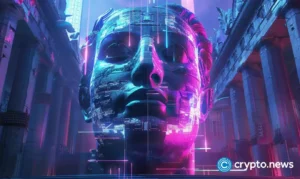Mastering 10 Crucial Tech Skills to Thrive in the Metaverse by 2030

As the boundaries between physical and virtual worlds dissolve, the Metaverse is poised to redefine interaction, innovation, and digital enterprise. This immersive ecosystem demands more than imagination—it requires a sharp command of next-generation technical capabilities. Let’s explore the most demanding tech skill set to drive success in the metaverse by 2030.
10 In-demand Tech Skills to Succeed in the Metaverse Economy
.
Advanced Programming
Core programming languages like C++ and C# form the foundation of Metaverse development. C++ offers low-level memory control ideal for performance-intensive virtual environments, while C# is essential for scripting within Unity-based projects.
Read more: 7 Warning Signs Social Media Is Affecting Your Child’s Mental Health
These languages power avatars, object behaviours, and backend logic across immersive platforms. Demand for developers fluent in these software continues to grow, especially in:
– Game studios
– Simulation platforms
– Enterprise metaverse projects
Platforms such as Codecademy, Coursera, and Microsoft’s Learn portal offer structured pathways for mastering these programming languages.
VR/AR Software Development
Virtual Reality (VR) and Augmented Reality (AR) development rely heavily on engines like Unity and Unreal. Unity supports rapid prototyping and cross-platform deployment, whereas Unreal excels in high-fidelity rendering. These tools are used to build interactive training simulations, virtual showrooms, social spaces, and metaverse gaming worlds.
Read more: Best 10 Smartphones Releasing in April 2025
VR/AR developers are in high demand across industries, from healthcare to education and retail.
Learning paths include:
– Unity Learn
– Unreal Online Learning
– XR (Extended Reality) boot camps that offer hands-on experience in creating real-time, interactive 3D applications
3D Modeling and Animation
Creating realistic avatars, environments, and dynamic objects in the Metanetwork hinges on expert-level 3D modeling and animation. These skills bring digital worlds to life, enhancing immersion and interaction. Artists and technical animators use tools like Blender, Autodesk Maya, and Cinema 4D to produce characters, textures, and visual effects.
Read more: Assassin’s Creed Shadows Game Review: What’s New
As per Horizon Grand View Research, the global 3D animation market reflects this booming demand. The market already generated USD 25,259.6 million in 2024 (over BDT 30,077 crore) and is projected to hit USD 51,028.6 million (more than BDT 60,760.7 crore) by 2030. The CAGR (Compound Annual Growth Rate) is 12.3%.
Career opportunities span gaming, virtual production, fashion tech, and education. Skill acquisition is accessible through platforms like CG Spectrum, Udemy, and Skillshare.
Blockchain Engineering and Smart Contract Development
Decentralization in metaplatforms depends on blockchain frameworks, where smart contracts automate transactions, ownership, and governance. Engineers proficient in Solidity (Ethereum), Rust (Solana), and Web3.js are driving the development of digital assets, token economies, and interoperable virtual platforms.
Read more: Best Free Blockchain Development Courses in 2024
Applications range from NFT marketplaces to decentralized identity systems and virtual land registries. As enterprises and startups scale blockchain-based metaverse ventures, skilled developers remain in high demand.
Learning can begin through free resources like:
– CryptoZombies
– Moralis Academy
– MIT’s blockchain curriculum
Practical GitHub contributions and hackathons further solidify expertise.
Artificial Intelligence and Machine Learning Implementation
AI and machine learning technologies shape intelligent behaviours across Metaverse systems—from NPCs (non-player characters) to personalized content delivery. These implementations enhance realism, automate moderation, and enable user-specific interactions.
Read more: Home Safety Digital Lockers and Vaults: Popular Models with Price Ranges in Bangladesh
Neural networks, NLP (Natural Language Processing), and computer vision are increasingly integrated into Metaverse platforms. The aim is to interpret human gestures, speech, and decision-making patterns.
The job market favors ML engineers, AI specialists, and data scientists with domain knowledge in immersive systems.
Gaining proficiency involves mastering Python, TensorFlow, and PyTorch, with structured learning paths on platforms like:
– DeepLearning.AI
– Fast.AI
– Google’s ML Crash Course
Read more: 10 Best Alternatives to Skype in 2025
Real-Time Computer Graphics and Rendering
Visual immersion in the Metaverse relies on advanced real-time graphics and rendering techniques. These enable high-quality visuals without compromising performance. This includes mastering shaders, ray tracing, and optimization algorithms.
Applications extend across gaming, virtual architecture, simulation training, and digital twin environments.
Research and Markets (The World’s Largest Market Research Store) report shows a significant expansion in the global computer graphics market. It rose from USD 221.80 billion in 2023 (more than BDT 264101.5 crore) to USD 238.19 billion in 2024 (over BDT 284462.8 crore). Now it is projected to reach USD 372.42 billion (above BDT 443447.6 crore) by 2030, growing at a CAGR of 7.68%.
Learning pathways include NVIDIA’s Deep Learning Institute, Unity and Unreal Engine tutorials, and university-led graphics courses.
Read more: Which phones are getting One UI 7 first and when
Network Infrastructure and Cloud Computing Architecture
The scalability and responsiveness of the Metaspace depend heavily on robust network infrastructure and distributed cloud systems. Skills in building and managing cloud-native applications and latency-optimized networks are critical for delivering seamless virtual experiences.
Technologies like Kubernetes, Docker, AWS, Microsoft Azure, and Google Cloud play central roles in hosting real-time environments and data-heavy simulations. Professionals with cloud certifications and networking expertise are in high demand across sectors such as:
– Gaming
– Virtual conferencing
– Enterprise XR platforms
Practical skills can be developed through vendor-specific training programs (like AWS Certified Solutions Architect).
Read more: Top 10 Holy Quran Apps on iOS and Android in Ramadan 2025
Cybersecurity for Virtual Environments
With rising interoperability and digital asset transactions, the metaverse is a prime target for cyber threats. Cybersecurity experts who understand virtual environments are essential to defend decentralized systems and protect digital identities.
Key focus areas include encryption protocols, zero-trust architecture, threat modeling for XR platforms, and blockchain forensics.
Learning pathways include certifications such as:
– CEH (Certified Ethical Hacker)
– CompTIA (Computing Technology Industry Association) Security+
– Labs from platforms like TryHackMe, Hack The Box, and Cybersecurity Virtual Labs.
Read more: Top 10 Best Offline Android Games Under 200MB for Low-End Phones
Data Analytics and Big Data Engineering
Decision-making within the metaplatforms hinges on vast, real-time data—from user interactions and movement patterns to asset performance and behavioral analytics. Big data engineering enables the structuring, processing, and querying of these large-scale datasets. On the other hand, analytics transforms raw information into strategic insights.
Use cases span immersive retail analytics, virtual ad targeting, and optimization of interactive environments.
According to the World Economic Forum’s Future of Jobs Report 2025, job disruption may impact 22% of global roles by 2030, but 170 million new jobs are expected to emerge.
Skills in SQL, Hadoop, Spark, and tools like Tableau or Power BI are highly sought after.
Learning can be accelerated through platforms like DataCamp, edX, and IBM’s data engineering pathways.
Read more: Lenovo Yoga Slim 7i Aura Edition Review: A True MacBook Competitor or Just Hype?
UX/UI Design
Designing for spatial computing demands a unique approach to user experience and interface layout. UX (User Experience) / UI (User Interface) professionals must account for 3D space, movement, gesture control, and device-specific constraints.
Applications include virtual marketplaces, training environments, and social hubs. Skilled designers with knowledge of the following software become increasingly valuable:
– Figma
– Adobe XD
– 3D prototyping tools like ShapesXR and Gravity Sketch
Learning resources include Coursera’s AR/VR design courses, Meta Spark tutorials, and HCI (Human-Computer Interaction)-focused design programs.
Read more: Avro Keyboard: Groundbreaking Journey of a Bangla Typing Software by Mehdi Hasan’s Team
Bottom Line
These 10 in-demand skills define the future-ready toolkit for thriving in the evolving Metaverse landscape. From advanced programming and VR/AR software development to 3D modeling, blockchain engineering, and AI/ML implementation, technical fluency fuels innovation.
Real-time graphics, cloud infrastructure, and cybersecurity safeguard interactive ecosystems, while big data analytics and UX/UI design shape user engagement and decision-making. Mastery of these hard skills ensures adaptability and relevance as virtual experiences grow central to global interaction, commerce, and collaborative creation by 2030.
Read more: How to Verify If Your Smartphone is Truly Brand New and Never Used Before
Source link
#Essential #Tech #Skills #Thriving #Metaverse





